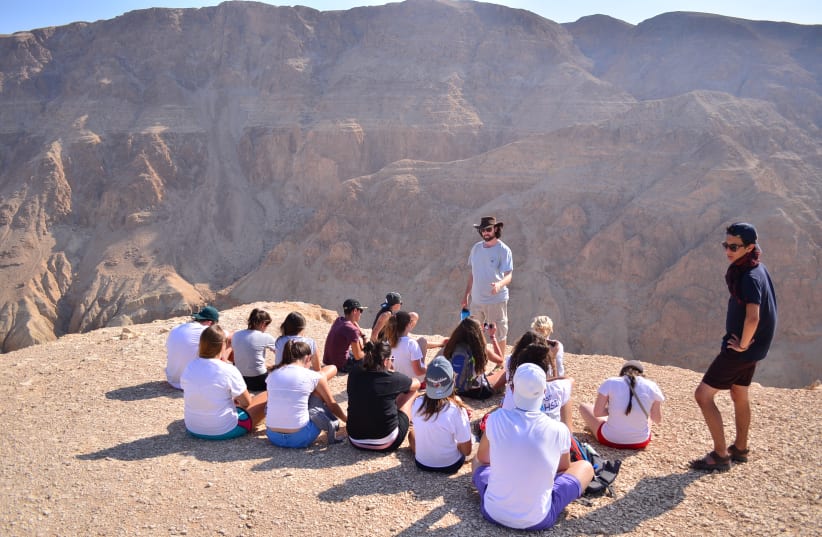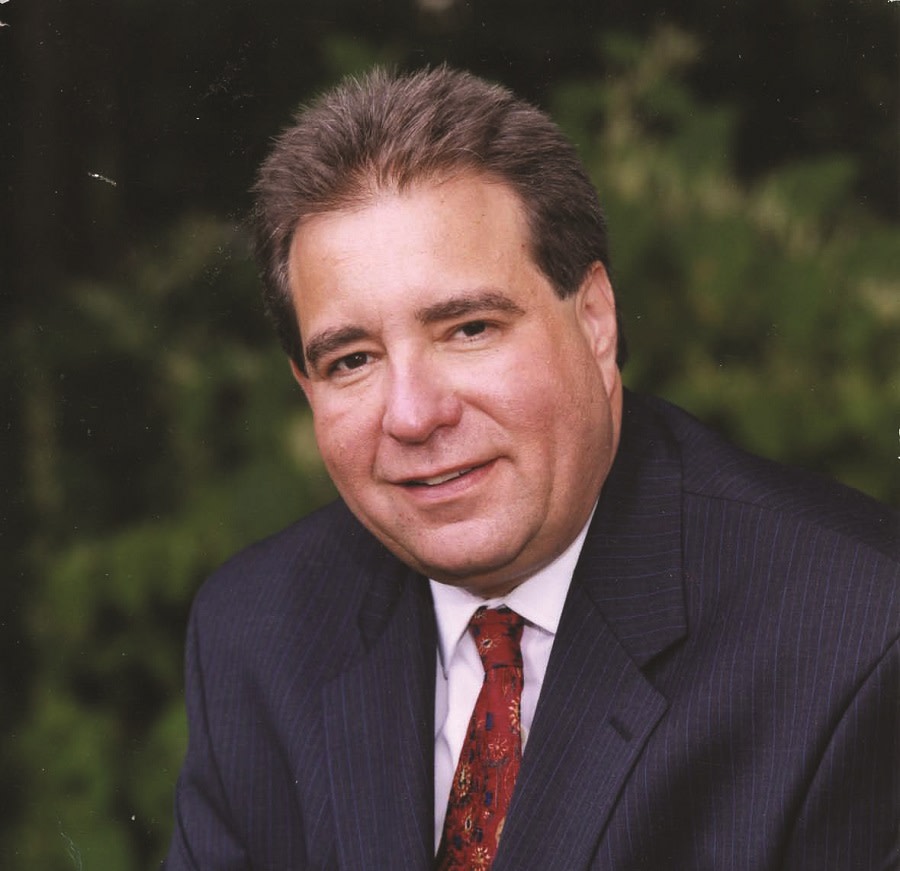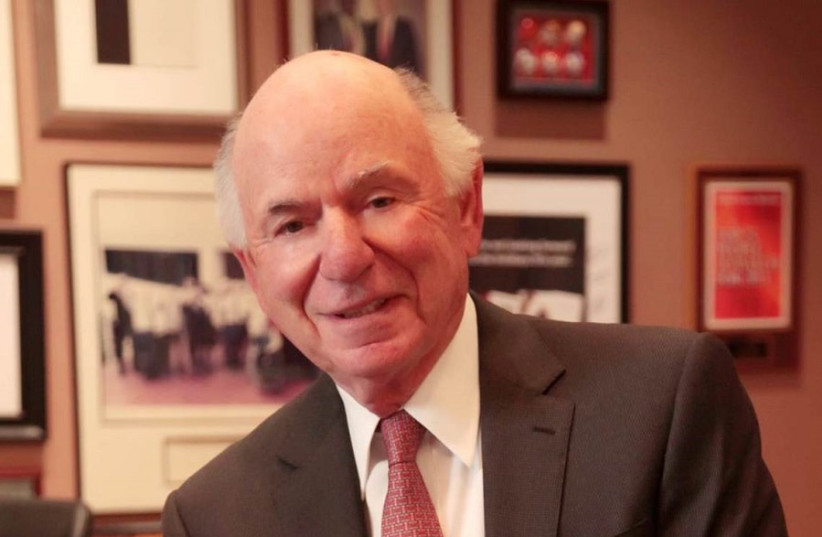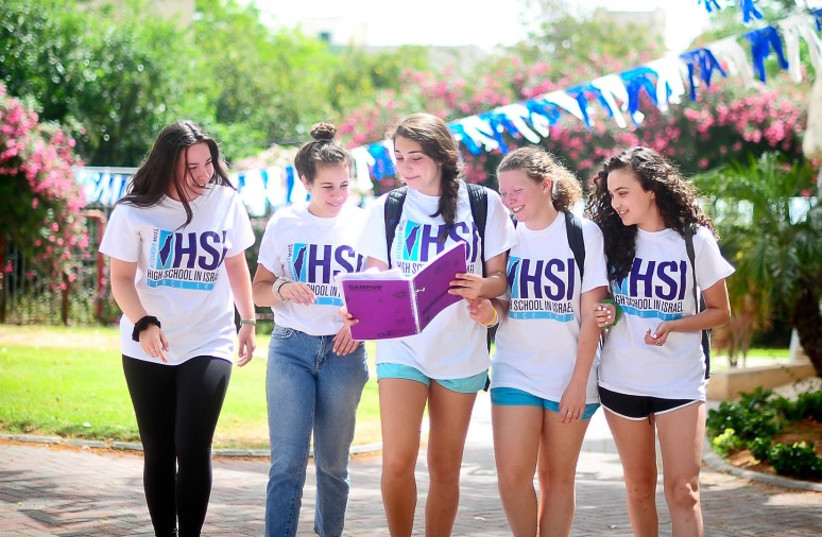‘The Jewish Future Pledge is the greatest opportunity for Jewish organizations to continue the conversation that you have invested in,” says Russell F. Robinson, CEO of Jewish National Fund-USA.
If anyone is qualified to speak about continuing a dialogue within a Jewish organization and maintaining contact with one’s constituents, it is Robinson, whose ability to train the Jewish leaders of tomorrow has made JNF-USA one of the top-rated charities in the United States and the leading US-based organization for the land and people of Israel.
“Everything we do is about our tomorrow,” says Robinson. “And when I say ‘our,’ I’m referring to our collective Jewish community. From our synagogues to legacy communal organizations, we’re all in this together.
“Today, Jewish National Fund-USA’s fastest growing demographic is our 22-40-year-old JNFuture group. We mandate that every one of our boards must have at least one seat on it for a JNFuture member because you bring people in by getting them involved and feeling a part of your movement.
“That’s why there is a natural synergy between our mission and that of the Jewish Future Pledge; we’re both committed to the future in the belief that our best days are yet to come,” he asserts.
'The Jewish Future Pledge emphasizes the need to be thoughtful about the legacy we want to leave for the next generation’
Created by Mike Leven, a business executive and philanthropist, the Jewish Future Pledge is a worldwide movement that inspires Jews of all backgrounds to commit that upon their death, at least half of the charitable funds that they leave will be earmarked to support the Jewish people and/or the State of Israel. It is estimated that $68 trillion will be transferred to the next generation in the next 25 years. The Jewish Future Pledge estimates that approximately 20% of the charitable donations that will be given from this amount will be from Jewish donors. The pledge aims to ensure that half of the amount allocated to charity by these Jewish donors, more than $600 billion, is set aside for Jewish causes.
As part of arranging the pledge, parents speak to their children and grandchildren about the Jewish values that have guided their lives and the importance of sustaining the Jewish people. These conversations are key for fostering engagement and support for the organizations that will carry on the Jewish tradition in the future.
JNF-USA has enthusiastically embraced both the Jewish Future Pledge and the Jewish Youth Pledge, a special initiative that asks Jewish teenagers and young adults – ages 13 to 24 – to commit to being active, contributing members of the Jewish community throughout their lives.
Speaking of the Jewish Future Pledge, Robinson says, “We raise our children, and we’re assuming they’re going to be part of the Jewish community, and our own estates are going to be part of that as well. The Jewish Future Pledge starts that conversation.”
He points out that the conversation that one should have with family members is a type of ethical conversation.“After you sign the pledge,” he suggests, “have that conversation with your kids the next day and tell them, ‘We signed the Jewish Future Pledge, and we want to make sure that a minimum of 50% of the money that we are going to give to charity upon our demise is going to go to Jewish charities.’ It starts by having the family conversation.”He reports that he has heard of many instances where family members were unaware that their parents wanted to leave a significant amount of their money to Jewish causes.
Robinson says that uppermost in the minds of today’s senior generation is leaving a legacy for their children and future generations, and the Jewish Future Pledge enables them to accomplish this.
“They want to know that their support for the land and people of Israel will continue and that their children and children’s children will gain inspiration from what they achieved in their lifetime. The Jewish Future Pledge further emphasizes the need to be thoughtful about the legacy we want to leave for the next generation.”
The second component of Levin’s plan – the Jewish Youth Pledge – helps teens engage with their Jewish heritage and their role in the Jewish community through a pre-planned lesson, which includes videos and discussion prompts. After completing the assignment, they are asked to write a letter on their smartphone or tablet to their future selves, answering questions such as “If you could meet yourself in the future, what would you hope to hear that you had accomplished or contributed?” The letter is stored in a secure Digital Time Capsule and shared with participants at key junctures throughout the next two decades of their lives.
Participants will be reminded of their commitment every five years, for the next 20 years, via a text message containing their full letter. It will remind them at various stages of their lives about the goals and aspirations they wrote as teens.
JNF-USA is engaged with 21,000 children between kindergarten and eighth grade. The organization promotes the Jewish Youth Pledge in all its youth activities and asks children to participate and write a letter to themselves.
“The Jewish Youth Pledge starts that journey that we have worked so hard to get to – the bar/bat mitzvah time – and starts a conversation that will continue with them, with their own words, to say, ‘Here’s a little wake-up call. Remember about the Jewish people.’”
‘Students have enthusiastically responded to the Jewish Youth Pledge because it gives them a feeling of ownership of our Zionist movement today’
The organization’s recruitment of teens to the Jewish Youth Pledge continues at its Alexander Muss High School in Hod Hasharon, which offers a semester abroad experience for American high school students. Robinson explains that the Jewish Youth Pledge is discussed within the context of that program.
“We are teaching them 4,000 years of Jewish history. In that conversation, if we’re teaching about history, we want to teach about tomorrow. And in that conversation we’re having as part of our curriculum, we discuss the Jewish Future Pledge and the Jewish Youth Pledge. Students talk about their experiences in Israel. They talk about what they felt about learning 4,000 years of Jewish history, and they started looking at committing towards what they’re going to be in the future of the Jewish world. That comes back to them every five years. It’s a text from themselves, writing into themselves a story that they wrote that says, ‘I commit to the Jewish future.’”
Robinson notes that the response of teens to the Jewish Youth Pledge within the JNF-USA universe has been positive.
“We often talk about these kids as our future leaders. However, they are already leaders who have chosen to step out from the sidelines and explore their connection to our Jewish homeland.
“Students have enthusiastically responded to the Jewish Youth Pledge because it gives them a feeling of ownership of our Zionist movement today, a passion that only grows as they plan to continue their involvement for tomorrow and the day after. And when they go to college, they are the leaders of our campuses and organizations.”
One of the significant difficulties that confront Jewish organizations, says Robinson, is maintaining a connection and continuity with its members.
“The biggest problem that organizations have is follow-up,” he says.
JNF-USA is utilizing the Jewish Future Pledge and Jewish Youth Pledge to keep the connection with its membership.“We’re using the Jewish Future Pledge, the Jewish Youth Pledge, and the Jewish National Fund platform from birth to the boardroom to make sure that we’re talking to everybody every step of the way. When a fourth grader buys a tree, we stay in touch with them right up until their picture is hanging in the boardroom of one of our communal organizations. It’s part of our ‘from birth to the boardroom’ strategy, and the Jewish Future Pledge helps us deepen their engagement.”
While planning for the Jewish future is one thing that the JNF-USA and the Jewish Future Pledge have in common, Robinson suggests that there is something else that both organizations share.
“The world is always about dreams and aspirations and hopes and tomorrow, and the Jewish Future Pledge fits perfectly into that kind of a conversation. That is the conversation that the Jewish National Fund has always had.“Dream big, and dream about tomorrow. Dream about the Negev and the Galilee, the northern part of Israel.
Dream about our connection in the next 100 years – to a Jew from Argentina, Austin, Texas, Kiryat Shmona or Beersheba. Let’s build a new relationship.
“In that, commit to the Jewish future. If you believe in tomorrow, and if you believe in Judaism and our connection to Israel for tomorrow, then commit to it and then work on it.”
This article was written in cooperation with the Jewish Future Pledge and the Jewish Youth Pledge.



